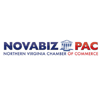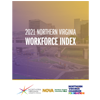Week 5 of the 401st Session of the Virginia General Assembly was the final full week before “crossover,” and both chambers were eager to get their bills through committees and onto the floor.
The Northern Virginia Chamber will continue to maintain a full-time presence in Richmond during the session, this year aided by additional contracted lobbyists from Williams Mullen. For more information regarding the Chamber’s business advocacy efforts and to see our 2020 Legislative Agenda, please visit the Chamber’s website at https://novachamber.org/2020-legislative-session.html.
Business Climate (Minimum Wage and Right to Work)
We are still waiting for the Senate Committee on Commerce and Labor to take up SB426 (Saslaw), the so-called “fair share” bill. It is on the docket again for the third time, this time for Sunday at 2:00pm. Minimum wage and full right-to-work repeals did advance this week.
- Minimum Wage
After Senate Commerce and Labor approved an amended version of SB7 (Saslaw) last week, Senate Finance rolled back those amendments and approved a version of SB7 more aligned with what was originally introduced. See last week’s update for details on Sen. Marsden’s amendments. SB7 is currently on the Senate floor.
In the House, the Labor and Commerce Committee this week approved HB395 (Ward), which raises the minimum wage to $10.00 on July 1 and then gradually to $15.00 on July 1, 2024. After that, the wage is pegged to the Consumer Price Index. The tipped wage changes that were included in the subcommittee version were removed in the committee-approved version.
- “Fair Share” and Right to Work
SB426 (Saslaw) would require employees to pay a pro rata share of a union’s collective bargaining expenses if that union in effect represented the employee in that bargaining. The bill is on the committee docket for the third time and will hopefully be heard on Sunday. The Chamber opposes this bill.
HB153 (Carter) was approved by the House Labor and Commerce Committee this week and referred to Appropriations. This is a simple bill that fully repeals Virginia’s right-to-work law.
There are no companions to either of these bills so it is unclear at this point, should both Chambers approve them, how they would be reconciled.
Taxing Authority
One challenging set of bills, HB785 (Watts) and SB484 (Favola)/SB588 (Hanger), would equalize taxing authority between counties and cities. The Chamber has been working with the patrons (as well as patrons of bills that this week were incorporated into these bills) to place limitations on the taxes and restrict a locality that has had a recent failed meals tax referendum from adopting that tax within a certain timeframe. This week, SB484 was incorporated into SB588 and approved by the Finance Committee. This bill prohibits any locality that has tried and failed to adopt a meals tax via referendum from adopting a meals tax until 2023. The House version was approved by the Finance Committee with a similar prohibition which in effect prevents a county from adopting a meals tax for six year after a failed referendum. For Northern Virginia, that means Fairfax County will not be able to adopt a meals tax until 2022 (House) or 2023 (Senate), since it held a referendum in 2016 that failed.
Local Zoning Ordinances and Labor Protections
A bill by Sen. Adam Ebbin (SB839) was passed by indefinitely on Monday by the House Local Government Committee. This bill would have allowed localities to include as a condition of approval for a special exception a requirement that developers enter into a project labor agreement with its contractors. The Chamber was very concerned that this would have had a very strong chilling effect on development in Northern Virginia and was pleased with the outcome this week. See the news coverage of this bill here: https://www.bizjournals.com/washington/news/2020/02/03/hq2-inspired-virginia-bill-that-could-have-forced.html?iana=hpmvp_wash_news_headline
Required Employee Leave Proposals
The General Assembly is considering a number of proposals requiring employers to offer specific kinds of leave. In the Senate this week, the Finance Committee passed by indefinitely SB770 (Boysko). That bill would have created a program, paid for by higher payroll taxes on employers and employees, to provide employees up to 12 weeks of annual leave for reasons included in the federal, non-paid, Family and Medical Leave Act. The House Labor and Commerce Committee on Jan. 30 referred HB825 (Carroll Foy) to the Appropriations Committee, which is the House companion to SB770. The Chamber spoke against these bills, stating the program is too costly, too expansive, and undermines the market-based, competitive benefits packages our members already offer. The fiscal impact statement is available here: https://lis.virginia.gov/cgi-bin/legp604.exe?201+oth+HB825F122+PDF
A more limited approach is included in bills HB898 (Guzman) and SB481 (Favola). These bills require employers to provide 40 hours of earned paid sick leave annually and exempt employers with less than 15. House Labor and Commerce referred HB898 to Appropriations and SB481 was approved by the Senate Finance Committee on Feb. 6.
While we are not supportive of any mandated leave bills, we have been engaging with patrons to try and mitigate the potential impact should the bills be successful.
Research & Development Tax Credits
The Chamber through its membership in the R&D Tax Credit Coalition is supporting SB110 (Howell) and HB748 (Jones) which would extend the sunset and increase the caps imposed when the program was created in 2016. SB110 passed the Senate 39-1 on Monday. The House companion was reported out of Committee on Wednesday and is scheduled to go before House Appropriations on Friday (Feb. 7).
Transportation Omnibus Bills
HB1414 (Filler-Corn) and SB890 (Saslaw) are the transportation omnibus bills that would implement the Governor’s budget proposal, partially restoring money diverted from the Northern Virginia Transportation Authority to WMATA in 2018 by raising the grantor’s tax, transient-occupancy tax, and statewide gas tax. HB1414 was approved by the House Appropriations Committee on Wednesday, clearing the way for that bill to go to the House floor. SB890 is currently on the Senate floor and could be approved as early as Friday (Feb. 7).
Many differences remain between the two bills and between each bill and the Governor’s proposal. The Chamber is supporting these bills and working with members of our delegation on them. Through our membership in the Northern Virginia Transportation Coalition, we are also working on more fully restoring the diverted NVTA funding.
Energy Bills
This General Assembly has a very strong interest in pursuing new clean energy policies for the Commonwealth and members have introduced a variety of bills to do so. Our 2020 Legislative Agenda supports initiatives that promote a diverse, reliable, efficient, and affordable energy portfolio to support a growing economy, while contributing to the Commonwealth’s economic development and environmental goals.
- Virginia Energy Plan
HB714 (Reid) and SB94 (Favola) call for the creation of a Virginia Energy Plan, which includes a target of net-zero emissions in Virginia by 2045. The Chamber is supportive of this approach to clean energy policy because it includes private sector engagement, considers economic implications of the transition to clean energy, and is generally a more business-minded approach to clean energy policy. SB94 was approved by the Senate on Jan. 24; HB714 was approved by the Labor and Commerce Committee on Feb. 6.
- Virginia Clean Economy Act
HB1526 (Sullivan) and SB851 (McClellan) are referred to as the Virginia Clean Economy Act. Similar to the Green New Deal, it sets interim targets for the use of renewables on the path toward 100 percent renewable energy generation by 2050. These are very far reaching bills and patrons have been meeting with a number of stakeholders throughout the session, with amendments still expected. There is broad support for these bills, particularly by the renewable energy industry. The House version was approved by Labor and Commerce on Feb. 6, and the Senate version will be before Commerce and Labor on Sunday. The Chamber is monitoring these bills.
- The Green New Deal:
The Green New Deal (HB77) is the energy legislation with the most strict deadlines. Among its many provisions, HB77 establishes a 2021 moratorium on new energy facilities that rely on fossil fuels, including pipelines that transport such fuels. It also requires that 100 percent of the energy sold by a retail electric provider be produced by clean energy sources. The Chamber opposes this bill because it does not consider the economic implications of what it is requiring, such as the affordability and reliability of the clean energy supply that may be available in 2036. It also includes a number of labor provisions unrelated to clean energy. House Labor and Commerce approved this bill on Feb. 6 and referred it to Appropriations.
Education and Workforce Bills
One policy area where Chamber priorities will advance this session is in education and workforce development. There are a number of these bills we are supporting that, when taken together, show a strong interest by this General Assembly in workforce development. The Chamber is very encouraged that our legislators have heard from the business community that more is needed to fill open jobs and create tomorrow’s workforce.
- Dual Enrollment and Work-Based Learning:
We are supporting several bills that take similar approaches to encouraging more dual enrollment by high school students. The House and Senate have approved companion legislation – SB112 (Suetterlein) and HB516 (Bulova) which require the Board of Education to include in its high school graduation requirements the options for students to complete a dual-enrollment course or high-quality work-based learning experience in place of an Advanced Placement or International Baccalaureate course.
HB524 (Subramanyam) was referred from the House floor to Appropriations, likely due to the cost associated. This bill would create a registry where IT and cybersecurity professionals would sign up to assist localities and school districts with mentorship and other workforce development opportunities.
HB1680 (Tyler) would require the Board of Education to update its Career and Technical Education Work-Based Learning Guide to expand the opportunities available for students to earn credit for graduation through high-quality work-based learning experiences.
Association Health Plans
The Northern Virginia Chamber remains supportive of association health plan legislation (HB795-Hurst, SB235-Barker, SB861-Mason), which would allow associations like Chambers of Commerce to offer health coverage to small businesses. This helps small business gain access to more affordable healthcare for their employees. Last session, Gov. Northam vetoed legislation regarding association health plans. The Virginia Chamber took the lead in working through his list of objections. SB861 was approved by the Senate on Jan. 24 and SB235 was approved unanimously on Jan. 28. On that same day, HB795 was reported out of Committee unanimously.
Budget
This is of course a budget year, and Gov. Northam’s 2020-2021 budget includes major investments in education and transportation. The Chamber is working to ensure our priorities included in the budget, particularly in education and transportation, are funded equitably through General Assembly adoption.
Budget amendments we are supporting include Sen. Favola’s restoration of the Commonwealth Cyber Initiative which is $25,000,000 over the biennium. There are a couple that we are working with the patrons on to better understand, mostly those that alter the Governor’s G3 initiative: freezing tuition and changing definitions of eligible students and institutions.
If you have not reviewed the proposals included in this budget, I would encourage you to do so here: https://www.governor.virginia.gov/newsroom/all-releases/2019/december/headline-849987-en.html
- Education:
- $145M: The establishment of the G3 program which provides tuition-free community college available to low- and middle-income students who pursue jobs in high-demand fields
- $94M: The budget makes many investments in early childhood education, the largest of which is $59.5M for the Virginia Preschool Initiative which targets at-risk 3- and 4-year-olds.
- $1.2B: The budget includes funding for a number of K-12 priorities of the Governor, including $145M for teacher raises and $125M in flexible funding for local school systems
- Transportation
- Increases the gas tax by 4 cents annually for 3 years then ties it to the Consumer Price Index.
- Replaces $45M of NVTA revenue diverted to WMATA in 2018
- Administration’s presentation on the transportation elements of the budget: http://sfc.virginia.gov/pdf/transportation/2020/01152020_No1_Valentine.pdf
These weekly updates are meant to provide a snapshot of how the Chamber is advocating on behalf of our members at the General Assembly. If you would like to know how the Chamber is engaging on a topic not included in this update, please contact Vice President of Government Relations Clayton Medford (cmedford@novachamber.org).















